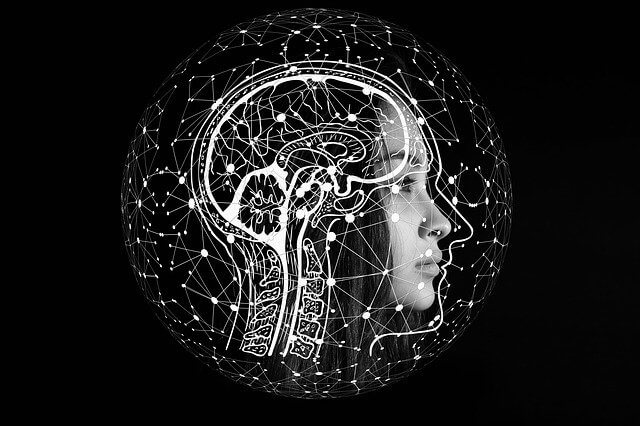The brain is complex and powerful. It controls every aspect of the human body. It is similar in function to a computer system, except that there are no silicon chips or electrical circuits to relay information. Instead, the brain uses signals from neurons to send communications throughout the body. Different circuits in the brain coordinate and perform specific functions. Neurons work like a network by sending signals back and forth and throughout the rest of the body via the spinal cord and central nervous system.
The slightest change in the brain can alter how well it functions. When a person consumes drugs or alcohol, it interferes with the way neurotransmitters send and receive information. These substances prevent the normal recycling of brain chemicals because they interfere with the transporters. Prolonged use of drugs or alcohol can change the brain’s entire chemical makeup, including how the neurotransmitters function. Once a person enters alcohol detox, neurotransmitters, minerals, and vitamins can be rebalanced. Through proper nutrition and supplements, neurotransmitters can eventually be restored to normal.
How Neurotransmitters are Affected by Alcohol
In the brain, alcohol increases the activity of Gamma-Aminobutyric acid (GABA) neurotransmitters. GABA is known to produce a calming effect. It is also the primary inhibitor neurotransmitter in the brain and works opposite to the excitatory neurotransmitters that speed up the brain’s nerves. The higher the level of GABA activity, the slower the nerves are able to travel across the brain. Consuming alcohol also decreases the production of glutamate, which is an excitatory neurotransmitter. The decrease of glutamate, along with a simultaneous increase in GABA is what causes a person’s speech to slur, which is common in those who have consumed alcohol.
Alcohol increases the activity of dopamine; the “feel good hormone” in the brain. Glutamate and serotonin are also neurotransmitters that stimulate feelings of pleasure and activate the reward center in the brain. By activating these neurotransmitters, alcohol communicates that it is good for your well-being, much like food. Unfortunately, the more alcohol one consumes, the serotonin and glutamate levels continue to drop, which can leave a person feeling depressed or anxious.
When alcohol inhibits the firing of neurons’ electrical impulses in the brain, it impairs judgment, alertness, visual perception, coordination, and other responses. Initially, alcohol consumption releases norepinephrine and adrenaline along with dopamine which makes a person feel happy. They may experience a high and feel totally free of stress. However, with chronic alcohol use, the neurons become impaired, and over time less norepinephrine is released. This leads to the inability to process information effectively, which can lead to serious memory loss.
Can Neurotransmitter Balance be Restored?
In most cases, neurotransmitter balance can be restored. However, it can take some time to rebuild and restore the neural pathways. However, there are many factors that affect how long the restoration process may take each individual. The time needed depends on genetics, general physical health, the person’s age, and mental health challenges they may be facing. The best route for restoring a healthy balance is making healthy choices about food and exercise.
A proper diet affects physical health as well as improves brain and CNS functions. Eating healthy foods can help, but it is often not enough to restore a healthy balance. Supplements, along with a healthy diet, can help provide the nutrients needed for the resumption of natural neurochemical production. Amino acids, along with specific minerals and vitamins, offer great support for rebuilding neuropathways.
The Role of Vitamins and Minerals on Neurotransmitter Balance
The same building blocks that make other cells in the body create the neurotransmitters in the brain too. Where do these building blocks come from, and how do you get them? A healthy diet and the right supplements. Consuming the right amount and balance of amino acids, vitamins, and minerals can help rebuild neurotransmitters and restore their proper balance. They are essential components of the restorative process.
Amino Acids
To function properly, the body and neurotransmitters need amino acids. Most neurotransmitters are derived from metabolized amino acids. Amino acids are necessary for building neurotransmitters, neurons, and connective tissue. The amino acids Tyrosine and phenylalanine are used to make the neurotransmitters norepinephrine and dopamine. L-glutamine is an amino acid that helps support GABA, the inhibitory neurotransmitter, and also affects the part of the brain responsible for cravings. However, amino acids need other components like plenty of oxygen and some specific vitamins and minerals to do their jobs effectively.
Vitamin C
Vitamin C is commonly found in fruits and vegetables. This essential vitamin is helpful for helping the body produce neurotransmitters. Vitamin C synthesizes the amino acids dopamine and norepinephrine. When the body doesn’t get enough vitamin C, it can lower dopamine levels. Vitamin C offers many neurological benefits, such as improving brain function and protecting brain cells from oxidative damage. Getting adequate amounts of this vitamin each day is necessary for producing neurotransmitters.
B-Vitamins
The B-complex vitamins help support neurotransmitter production. B-complex includes eight nutrients that contribute to healthy and balanced neurotransmitter function. Vitamin B-5 helps the body produce the neurotransmitter acetylcholine, which is essential for proper muscle function. B-6 is useful in the production of the mood-boosting neurotransmitter serotonin. B-9 and B-12 help the brain metabolize neurotransmitters, minerals, and vitamins which work together to control the levels of serotonin in the brain. A B-12 deficiency can increase the risk of depression since it directly affects neurotransmitter balance.
Chromium
Chromium is beneficial for helping transport the amino acid tryptophan to the central nervous system. Tryptophan is converted into serotonin, a neurotransmitter. Chromium is also thought to induce and enhance the release of another mood-regulating neurotransmitter, norepinephrine. Additionally, chromium helps to decrease the activity of a 5-HT 2A receptor, which is a specific type of serotonin receptor.
Zinc
Zinc is a trace element that is essential for regulating cellular metabolism. But in the brain, it has two forms. Some zinc binds tightly to proteins. Free zinc, on the other hand, plays a huge role in neurotransmission and is mediated by GABA and glutamate.
Are you ready to help restore and rebalance your neurotransmitters naturally? It’s essential to choose a formula that contains the proper balance of amino acids, minerals, and vitamins. BioRebalance Restore is formulated to have the perfect balance of nutrients to help you restore neurotransmitter balance.
Dr. Rebeca Eriksen, PhD MSc BSc (Hons) RD, is the Co-Founder at BioRebalance. She has a PhD in Nutritional Genetics from Imperial College London, and over ten years of clinical experience designing custom nutritional repair regimens for patients recovering from alcohol addiction and other disorders.

